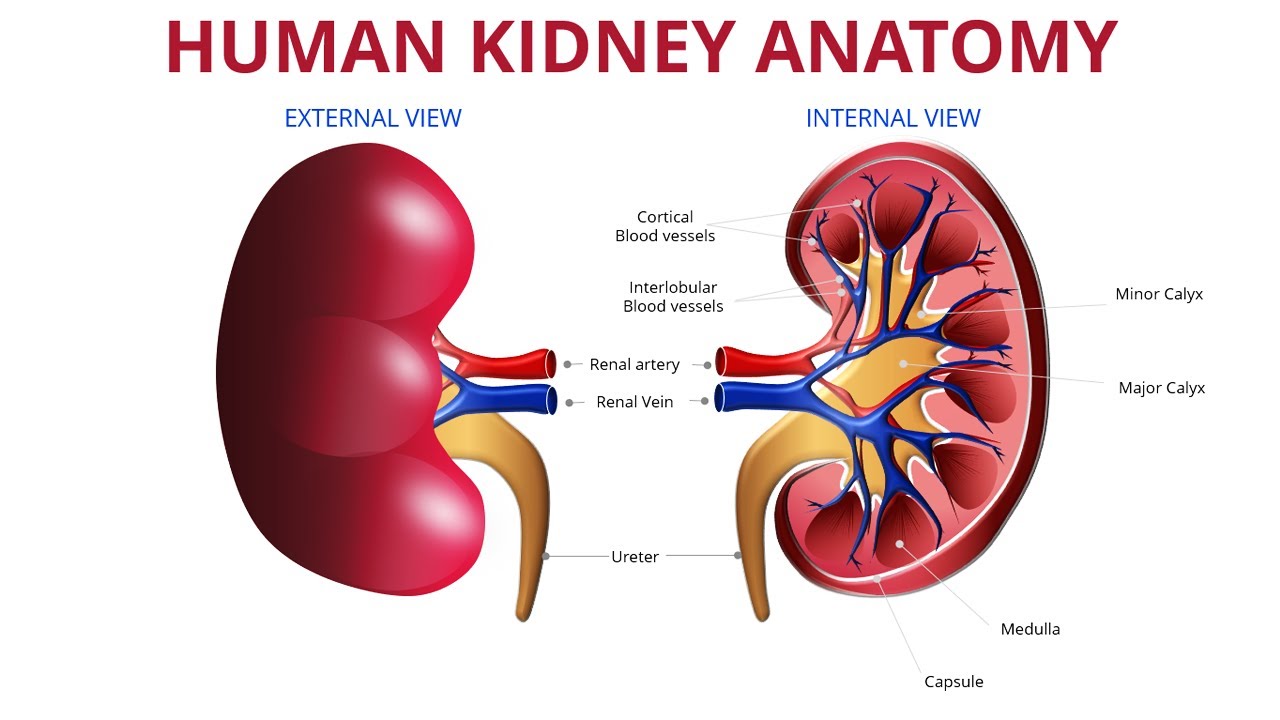The Kidney Protection Project is focused on sharing scientific information with the Nigerian populace in a user-friendly format to promote kidney health, improve awareness and enhance understanding of kidney failure and debunk myths about kidney failure. Starting today, a bi-weekly column will appear in this space geared towards achieving these goals.
Awareness and knowledge about a disease will generally correlate with health-seeking behaviour and enhance the chances for early detection. When kidney failure is undiagnosed or undetected, the healthcare system loses the opportunity to improve outcomes.
The expectation is that this public health endeavour will ultimately lead to early detection of kidney failure and a reduction in the incidences of kidney failure in Nigeria, and ultimately save lives.
The first in the series is titled: “Understanding Your Kidneys”.
Kidneys: Where are they?
The kidneys are two bean-shaped organs, each about the size of a fist, located just below the ribcage, one on each side of your spine. Normally each person has two kidneys.
Why are the kidneys important?
Our kidneys are as important to our health as our heart and lungs. Many other organs in the body depend on the kidneys in order to work properly. The kidneys remove wastes and extra fluid from your body. They also remove acid that is produced by your body and maintain a healthy balance of water, salts and minerals such as sodium, calcium, phosphorus and potassium in your blood. Without this balance, nerves, muscles, the brain and other organs in your body may not work properly. The kidneys also make hormones that help:
- 1. Control your blood pressure.
- 2. Make red blood cells.
- 3. Keep your bones strong and healthy.
How the kidneys work
The kidneys’ main job is to filter your blood. They remove wastes, control the body’s fluid balance and keep the right levels of electrolytes. All the blood in your body passes through the kidneys several times a day.
Each of your kidneys is made up of about a million filtering units called nephrons. Each nephron includes a filter called glomerulus and a tubule. The nephrons work through a two-step process: the glomerulus filters your blood and the tubule returns needed substances to your blood and removes wastes.
Wastes and extra water become urine. The thin walls of the glomerulus allow smaller molecules, wastes and fluid – mostly water – to pass into the tubule. Larger molecules such as proteins and blood cells stay in the blood vessel.
Your blood circulates through the kidneys many times a day. In a single day, your kidneys filter about 38 gallons of blood. Most of the water and other substances that filter through your glomeruli are returned to your blood by the tubules. Only about half a gallon or less becomes urine.
Dr Onyekachi Ifudu is the Project Coordinator of the Kidney Protection Project. He is board-certified in internal medicine and nephrology/hypertension and is an Adjunct Professor of Medicine at SUNY Downstate, Brooklyn, New York.

 Join Daily Trust WhatsApp Community For Quick Access To News and Happenings Around You.
Join Daily Trust WhatsApp Community For Quick Access To News and Happenings Around You.


